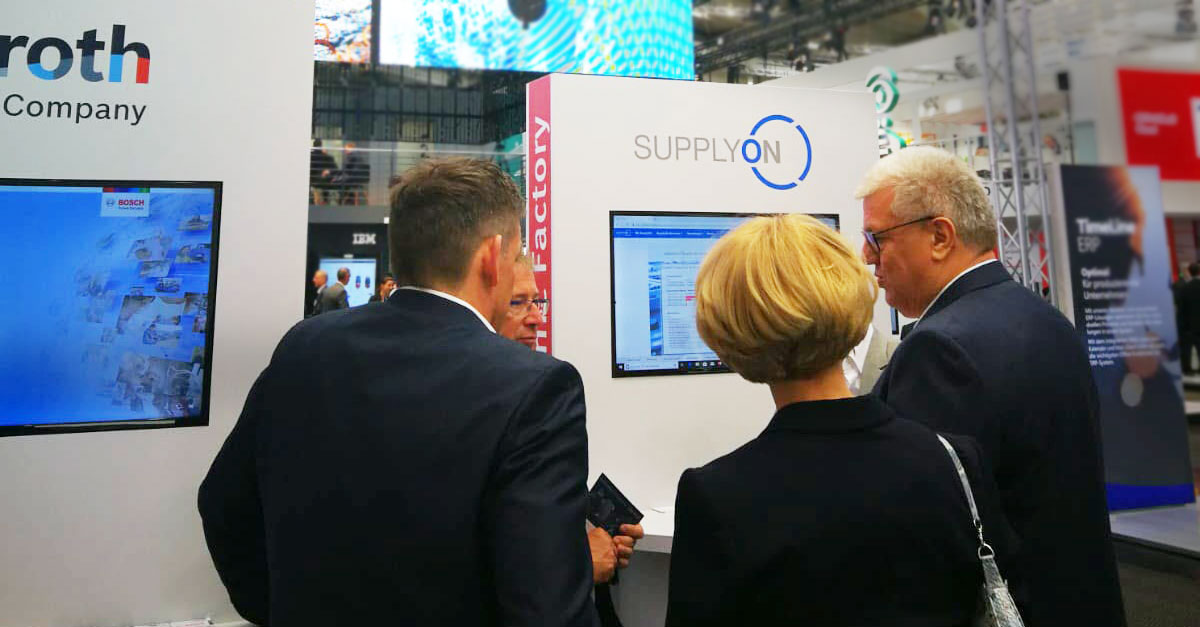Industry 4.0 – use the potential for success today!
![]()
There’s no doubt about it: Industry 4.0 – frequently also referred to as the Internet of Things – will become the dominant issue of the next few years. But the subject is full of pitfalls. On the one hand, it is obvious that players must act quickly in order not to be left behind and lose market shares. On the other hand, it is not clear exactly what has to be done. Industry, research and politics are still struggling to find a definition of the subject and the necessary standards. Many companies also fear that implementing Industry 4.0 concepts will require extremely high investments.
Some very pragmatic and low-cost approaches already exist, such as those established in the automotive industry, which already link many thousands of companies to each other. This can be the first step for companies in their approaching this subject and in quickly achieving initial successes in terms of increasing efficiency and cost savings.
How to successfully migrate to Industry 4.0
In a recent study the consulting company McKinsey comes to the conclusion that industry specific initiatives can be very helpful when implementing Industry 4.0. They recommend a pragmatic approach: The necessity to act now instead of waiting is obvious for all to see.
The study describes how companies should actively prepare themselves in five fields of activity:
- Make better use of data – map the entire value chain digitally
- Enhance skills – find employees with the appropriate skills and win their loyalty
- Ensure access to customers – control the strategic interfaces between product and customer
- Speed things up – foster continuous improvement
- Increase data security – put IT security on the board’s agenda
SupplyOn has already implemented essential elements of Industry 4.0
The pragmatism and industry focus called for in the study when it comes to designing Industry 4.0 is SupplyOn´s formula for success. The industry platform has been supporting web-based cross-company collaboration processes via a software-as-a-service (SaaS) since its foundation in 2000 – long before cloud and SaaS terminology became popular. Since then, more than 12,000 companies have become part of this global network, connecting purchasing companies, suppliers and logistics service providers from 70 countries with each other.
This network interconnects companies from various tiers in the supply chain, thus forming the basis for a successful implementation of, for instance, point one of the five fields of activity “Make better use of data – map the entire value chain digitally”: Companies outsource the variety of processes and interfaces to SupplyOn and as a result receive access to all the linked business partners via a single standard connection to SupplyOn.
This has been a common practice in the automotive and aerospace industries for years and we now see the rail industry digitalizing its value chain in the same manner.
Conclusion: Industry 4.0 is already there, not in the future
Due to its distinct positioning and longstanding expertise, SupplyOn offers comprehensive „de facto industrial internet“ of leading companies and industries.
- Rather than defining standards in various boards, which then require individual implementation within each company, SupplyOn has chosen a joint approach and made it accessible to the automotive, aerospace, railway and manufacturing industries via standardized interfaces.
- SupplyOn already connects some 12,000 companies which use these standards and processes as a basis for all transactions in the exchange of products and services – beginning with the request for proposal, covering the entire operational procurement process and ending with transport management.
- Being a neutral and established provider, SupplyOn is predestined to promote Industry 4.0 – ensuring a reliable and secure hosting of data in Germany and a global 24-7 support for users in eight languages, as well as offering an elaborate operational and support concept.
SupplyOn will continually progress its positioning in the future and will successively develop further aspects of Industry 4.0.
Read the full article from SUPPLY CHAIN MANAGEMENT Magazine here.



